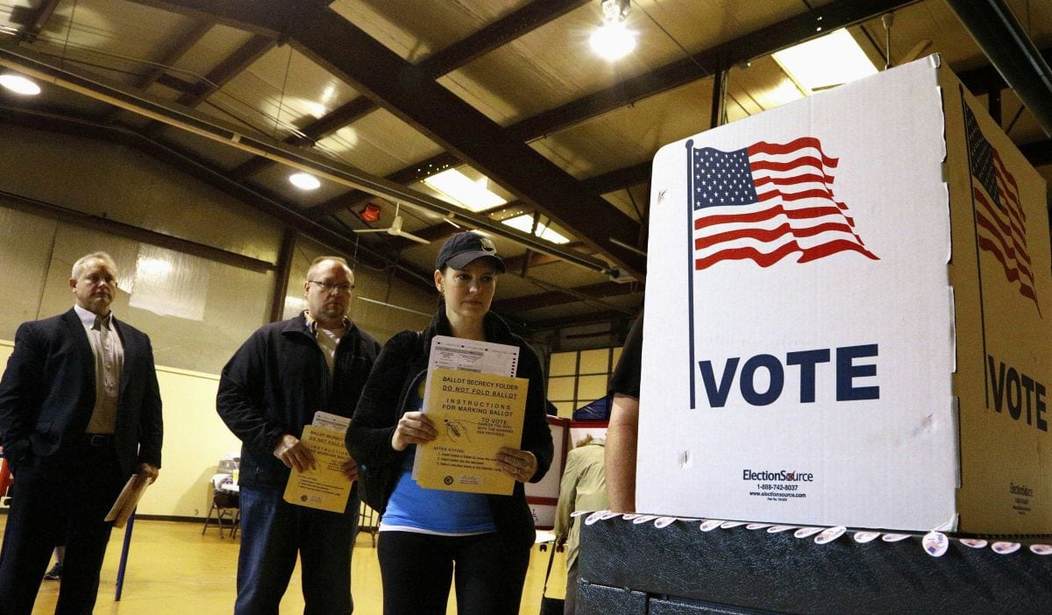Recent “generic” congressional polls are all over the place. Some give Democrats a double-digit advantage while others show Republicans within striking distance.
Forget the “generic” polls — they are almost useless to gauge party strength. There are 435 seats up for grabs with about 90 percent of them already decided due to the way most district lines are drawn.
Polls from individual contests are a little more reliable, but if a race is within 8-10 points I wouldn’t bet on the outcome on Election Day.
A new CNBC poll on the “generic” ballot shows Republicans within 6 points of Democrats with about a month to go before the polls open. But the numbers on voter attitudes on several big issues actually matter.
The latest CNBC All-America Economic Survey offers mixed signals, but leans against a wave Democratic election like that those that swept Republicans to power in 2010 and 2014.
The poll of 800 Americans across the country, with a margin of error of 3.5 percent, found a six-point Democratic lead on the question of who voters will choose in the November congressional elections. The 42 percent to 36 percent margin is not far from what pollsters would expect given the greater percentage of Democratic registered voters.
“A six point differential is not something that’s going to cause a big electoral wave,” said Micah Roberts, the Republican pollster on the CNBC poll, a partner Public Opinion Strategies. “Economic confidence that people have among a lot of groups is providing a buffer” for Republicans.
That “buffer” is working at cross purposes with Democratic efforts to nationalize the midterms by making Donald Trump the issue. It’s just not working:
Indeed, the poll found that 48 percent of the public is optimistic about the current economy and optimistic it will get better, the highest level in the poll’s 11-year history and more than double the 20 percent registered in the December 2016 survey. The poll, conducted Oct. 4th through the 7th, shows 83 percent of Republicans are optimistic but also 22 percent of Democrats and 40 percent of Independent voters.
The Democrats can’t run on a bad economy. In fact, they can’t run on any single issue except Trump and on saying the GOP is evil and needs to be destroyed. Democratic partisans might see the threats, the intimidation, and the violence by Democratic-supporting mobs as justified, but most others do not.
It’s not like the Democrats didn’t try to nationalize the election. They have ginned up hysteria against the president and Republicans, accusing them of treason, sexism, racism, ageism, and any other “ism” you can think of. It isn’t working as well as they hoped it would.
In 2010 and 2014, when Republicans made huge gains in the House and Senate, they were able to nationalize the election using Obamacare. Anti-Obamacare sentiment was running sky high and the issue drove people — especially Republicans — to the polls.
Hatred of Trump and Republicans, as well as a desire to wield power, will no doubt drive many Democrats to the polls. But you can’t create a national election without a national issue and Democrats don’t have one.
Working in the Republicans’ favor is not only record-high optimism about the economy but also about the stock market and near-record high optimism about wage growth. American expect their wages to grow an average of 5.1 percent in the next year, up from 4.7 percent in the June survey and the highest since 2008. A record-high 51 percent of the public say now is a good time to invest in stocks, with a record-low 25 percent saying it’s a bad time.
The idea that there will likely be no “blue wave” election does not mean the GOP will hang on to control of the House. There are just too many factors working against Republicans, making the chances of a Democratic House takeover better than 50-50.
But the spread after the election for either party will likely be a single-digit majority — a far cry from the 50-seat (or more) pick-up that Democrats were predicting just a few weeks ago.










Join the conversation as a VIP Member